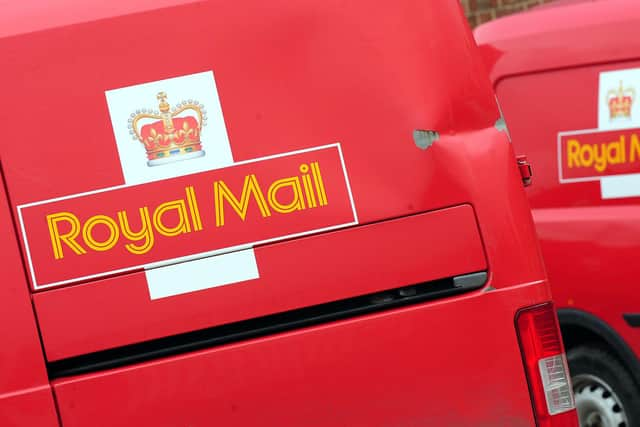Royal Mail owner chooses new boss from Dutch subsidiary as dip in revenue meets expectations
International Distributions Services (IDS) said that Martin Seidenberg will become chief executive of the group.
Since 2020 he has run GLS – an Amsterdam-based parcel delivery company owned by IDS which was the only part of the business to grow its revenue in the first quarter of the financial year, according to figures released separately on Thursday.
Advertisement
Hide AdAdvertisement
Hide AdHis appointment comes two months after Royal Mail’s chief executive, Simon Thompson, announced he would depart the business to let it “move forward under new leadership” following a long-running battle with its main union.


Mr Seidenberg does not technically replace Mr Thompson, who was not the boss of IDS, however the top role he now takes on was created following a reorganisation of the executive jobs.
He will be paid a base salary of £700,000 per year from August when he starts the job and will move to the UK. Once in place, he will choose new chief executives for Royal Mail and GLS.
The decision comes a year after Royal Mail Group rebranded to IDS to reflect the growing importance of GLS to the group.
Advertisement
Hide AdAdvertisement
Hide AdChairman Keith Williams said: “Under Martin’s leadership, GLS has grown to nearly 40 per cent of group revenue and it continuously delivered significant profit to the group.
“With Royal Mail entering a new phase of its transformation after the ballot on the agreement with the CWU, and GLS on a positive trajectory, we can move both companies forward under Martin’s leadership to deliver change, growth and value across the group.”
On Thursday the business revealed that once again, while Royal Mail’s revenue shrank 4 per cent in the three months to the end of June, GLS showed a healthy 7.4 per cent growth.
A 30 per cent reduction in addressed letters since the Covid-19 pandemic began highlights “the need for Ofcom and Government to take urgent action to reform the universal service”, the company said.
Advertisement
Hide AdAdvertisement
Hide AdRoyal Mail’s dip in revenue was in line with expectations. Part of the drop in parcel and letter deliveries was due to the extra bank holiday in May, the business said.
Victoria Scholar, Head of Investment at interactive investor, said: “Last week the dispute between Royal Mail and the Communication Workers Union (CWU) representing staff officially ended after a pay deal was reached in April between the two following months of strikes last year.
“Investors are cheering the appointment of a new CEO to help steer the letters and parcels company in a more positive direction after the recent turmoil with heavy industrial action, a structural decline in demand for letters and the end of the pandemic-era boom in parcel deliveries with the increased preference for in store shopping over e-commerce.
“Despite a better-than-expected performance for letters, Royal Mail continues to struggle, with revenues under pressure while GLS outperforms. Focus for Seidenberg will be to revamp Royal Mail and to call on the government to reform the Universal Service. However last month, the Government blocked Royal Mail’s plans to axe Saturday letter deliveries.”